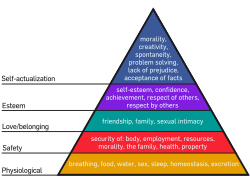Reward management is concerned with the formulation and implementation of strategies and policies that aim to reward people fairly, equitably and consistently in accordance with their value to the organization.
Reward management consists of analysing and controlling employee
remuneration and all of the other benefits for the employees. Reward
management aims to create and efficiently operate a reward structure for
an organisation. Reward structure usually consists of pay policy and
practices, salary and payroll administration, total reward, minimum
wage, executive pay and team reward.
Objective:
Reward management deals with processes, policies and strategies which are required to guarantee that the contribution of employees to the business is recognized by all means. Objective of reward management is to reward employees fairly, equitably and consistently in correlation to the value of these individuals to the organization. Reward system exists in order to motivate employees to work towards achieving strategic goals which are set by entities. Reward management is not only concerned with pay and employee benefits. It is equally concerned with non-financial rewards such as recognition, training, development and increased job responsibility.Types of rewards:
- Intrinsic motivation
- Extrinsic motivation
The principal goal is to increase people willingness to work in one’s company, to enhance their productivity.
Most people assimilate "rewards", with salary raise or bonuses, but this is only one kind of reward, Extrinsic reward. Studies proves that salespeople prefer pay raises because they feel frustrated by their inability to obtain other rewards, but this behavior can be modified by applying a complete reward strategy.
There are two kinds of rewards:
- Extrinsic rewards: concrete rewards that employee receive.
- Bonuses
- Salary raise
- Gifts
- Promotion
- Other kinds of tangible rewards
- Intrinsic rewards: tend to give personal satisfaction to individual
- Information / feedback
- Recognition
- Trust
- Relationship
- Empowerment
- Monogrammed name plaque
Motivation theories:
Job evaluation:
Job evaluation is closely related to reward management. It is
important to understand and identify a job's order of importance. Job
evaluation is the process which job's are systematically assessed to one
another within an organization in order to define the worth and value
of the job. This system carries crucial importance for managers to
decide which rewards should be handed out by what amount and to whom.
Job evaluation provides the basis for grading, pay structure, grading
jobs in the structure and managing job and pay relativities.



No comments:
Post a Comment